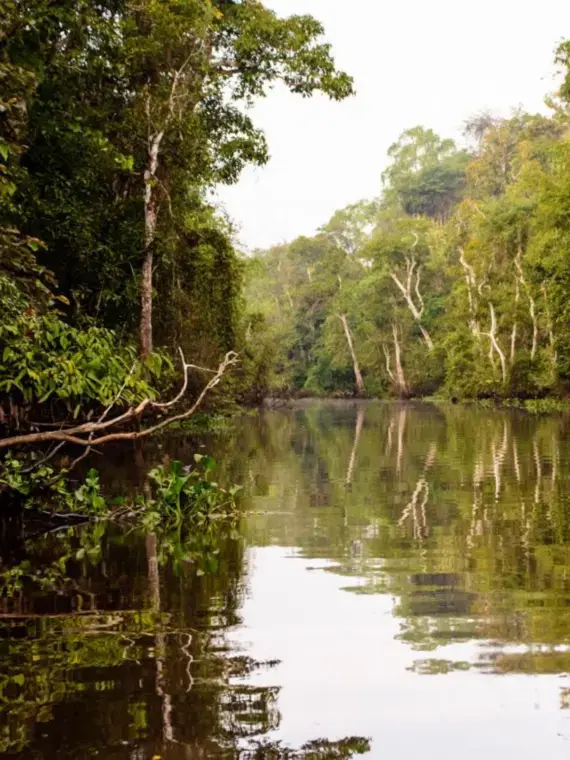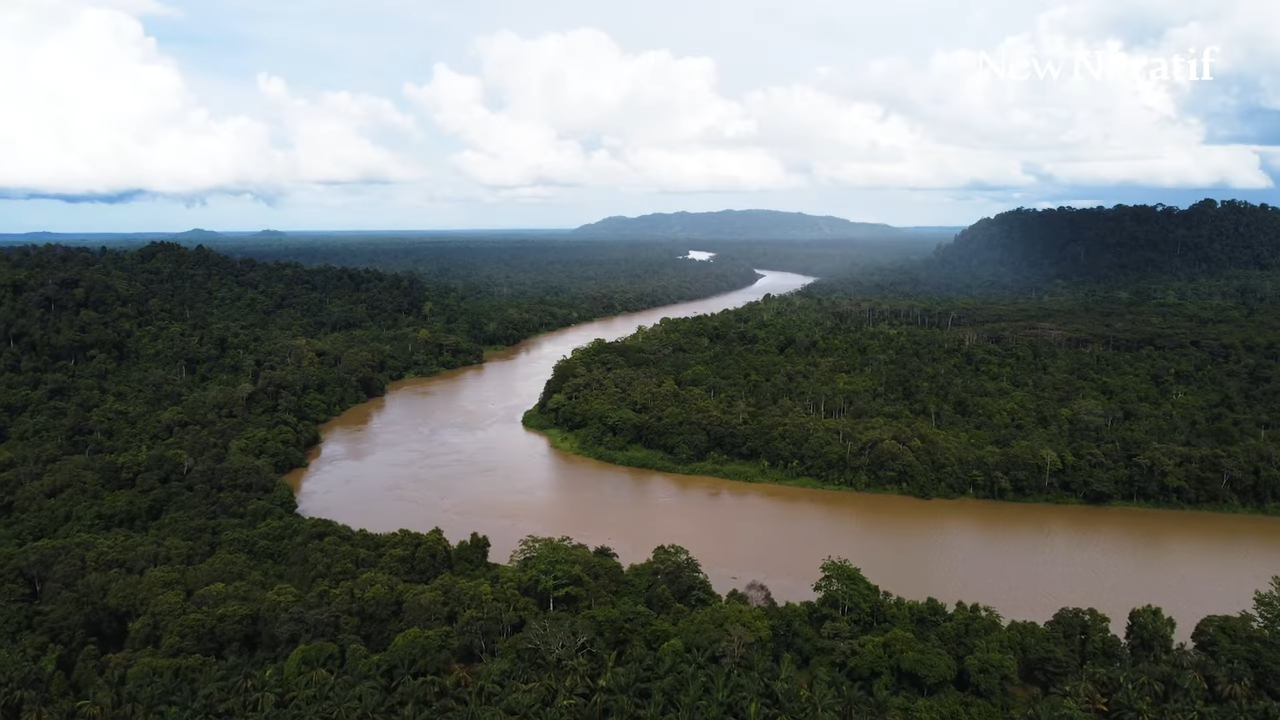Kinabatangan River in Sabah, Malaysian Borneo, is the second-longest river in Malaysia. Spread across 560 kilometers, it is known for its rich biodiversity.
However, excessive logging and land clearing severely disrupted the ecosystem in Kinabatangan, as 80% of the landscape became covered in oil palm plantations, with Sabah producing 12% of the palm oil globally. This threatens the long-term survival of most wildlife species in the area, which has lost almost a third of its orangutan population in the last 16 years. NGOs are working to establish forest linkages that reconnect key forest fragments, allowing the free movement of wildlife along the banks of the Kinabatangan river again. In Sukau village, a local NGO, HUTAN, has an all-women reforestation team led by a 55-year-old grandmother, Mariana Singgong. A native Orang Sungai, Mariana asked Hutan’s director for the job which her village-men failed to do so she could earn some income. Today, she leads a team of 10 women to plant trees under grueling work conditions, long hours under the hot sun, wildlife threats, and the arduous travel to worksites.
However, the COVID-19 pandemic impacted the reforestation efforts. The prolonged restrictions caused the planting sites to go wild, creating challenges for the teams carrying out their maintenance work.
Reforesting Borneo During the Pandemic aims to show the importance of the work of these unsung environmental heroes and how the pandemic has impacted the reforestation efforts.









